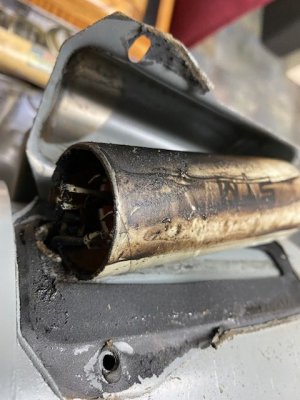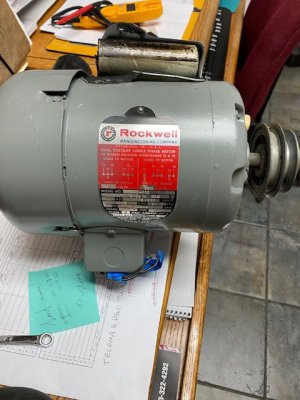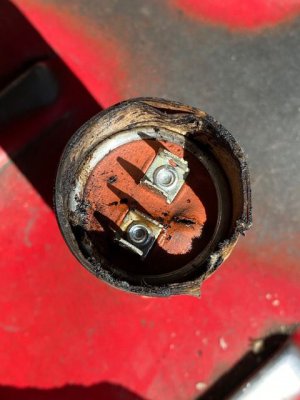- Joined
- Mar 26, 2018
- Messages
- 8,399
I am so incompetent when it comes to electric motors but I think this is a no-brainer.
I bought this beautiful Delta-Rockwell 14" metal/wood band saw off Facebook Marketplace yesterday.
When I went to look at it I knew I had found something special. It's very clean and has seen little use.
The seller told me it runs but you need to give it some help. Sure enough, spin the blade pulleys and off she goes.
This morning I found this 216-259 mfd start capacitor burnt out, smelly and I have no change when I touch my Fluke T5-1000 to the leads. I get 0L.
I found one from Graingers I just hope UPS will get it to me.
Question,
Why do they continue to use these capacitors? They don't last. Is there a brand that will last the life of the motor?
I bought this beautiful Delta-Rockwell 14" metal/wood band saw off Facebook Marketplace yesterday.
When I went to look at it I knew I had found something special. It's very clean and has seen little use.
The seller told me it runs but you need to give it some help. Sure enough, spin the blade pulleys and off she goes.
This morning I found this 216-259 mfd start capacitor burnt out, smelly and I have no change when I touch my Fluke T5-1000 to the leads. I get 0L.
I found one from Graingers I just hope UPS will get it to me.
Question,
Why do they continue to use these capacitors? They don't last. Is there a brand that will last the life of the motor?





